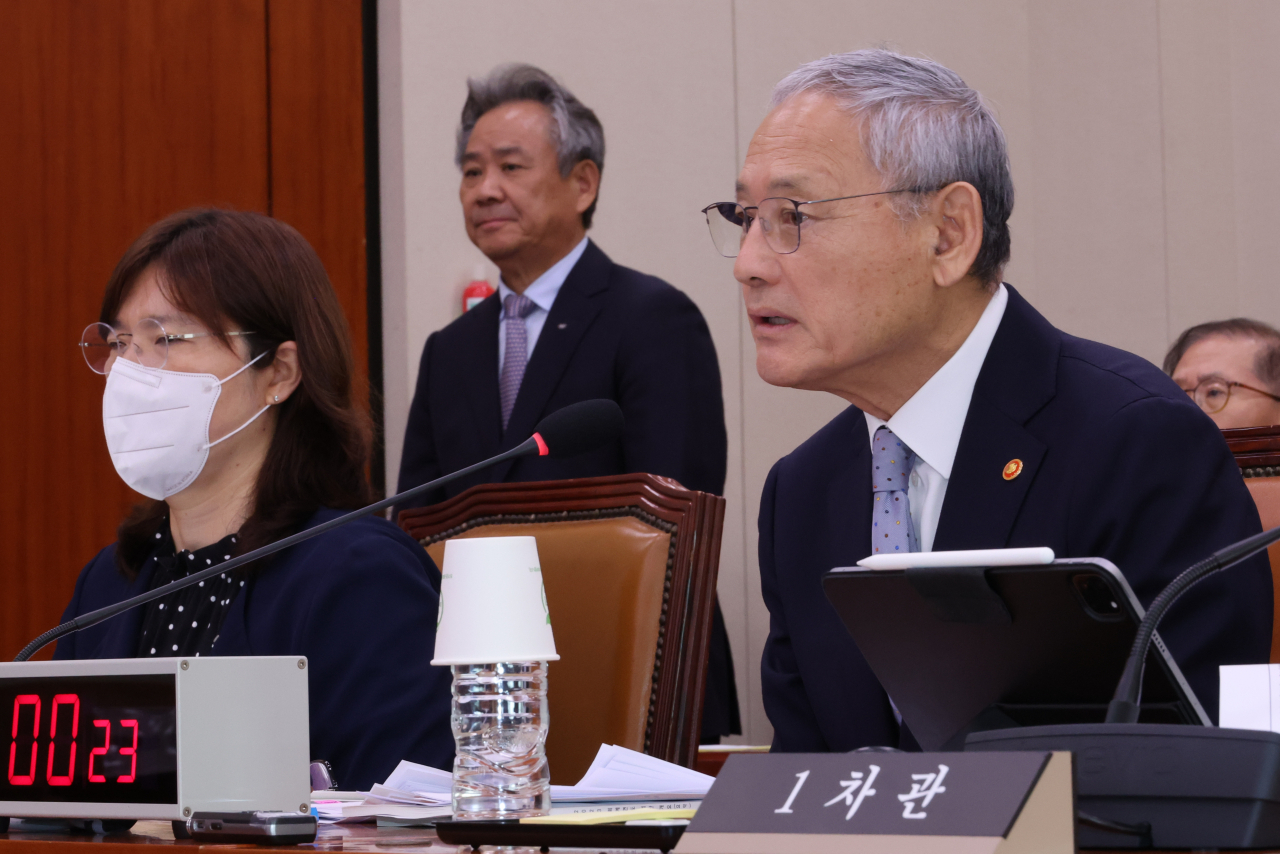In reaction to Sunday’s islandwide wave of unprecedented, 3G-enabled anti-government street protests—the result of years of political repression, lack of fundamental freedoms, recent shortages of food and medicine as well as a sharp increase in COVID infections and deaths—Cuban President Miguel Díaz-Canel took to Cuban national television in order to energetically if unconvincingly denounce the protesters as counterrevolutionary mercenaries and gusanos(worms) acting at the behest of the United States government. He also reminded his listeners that “in Cuba, the streets belong to the revolutionaries” and protesters would “have to climb over our cadavers” to achieve their goals.
If this incendiary language were not clear enough, this hand-picked successor to the Castro brothers—who was once thought to be a modern, tech-friendly, and forward-looking figure because of his relative youth (he’s 61 compared with Raúl Castro’s 90)—let Cuba’s “revolutionaries” (supporters of the government) know that he had their backs, inciting them to violence by encouraging them meet the protesters head-on in the streets using “any means necessary” to stop them.
“We will be in the streets fighting,” he angrily declared. “We call on all revolutionaries across the country, all communists, to take to the streets. The order for combat has been given. Revolutionaries to the streets!”
Fundamental to the internet’s revolutionary potential is the way it allows horizontal communication among Cubans on the island.While Sunday’s dramatic marches, confrontations with the police, and fearless street chants of “freedom,” “down with the dictatorship,” and “patria y vida” have been the main focus of international media coverage, a fuller understanding of what’s happening, how it came to pass, and what’s at stake for the future requires that we look beyond the street to the web, and beyond public space into cyberspace. It’s at the intersection of the two where the roots and possible fruits of this uprising lie.
AdvertisementTalk of the “democratizing” or “revolutionary” potential of the internet has become passé in most Western democracies given the dominance of a handful of Big Tech companies whose business model is based on mining our personal data for private profit and serving as unaccountable platforms for fake news and political polarization. However, in authoritarian contexts like Cuba, where the government has long since monopolized the mass media and transformed journalism into political propaganda, access to unfiltered channels of information and communication can indeed shift the balance of power in small but powerful ways.
Advertisement Advertisement AdvertisementYes, I’m talking about the social media behemoths Facebook, YouTube, Twitter, and Instagram. While they may be awash in bogus anti-vax pseudoscience, cat videos, and annoying selfies, they also enable “directas,” the Cuban term for the livestream broadcasts that are the true “culprit” behind the viral spread of the protests across Cuba on Sunday morning, without the need for a central coordinating authority or organization.
AdvertisementJust as important are peer-to-peer, direct messaging platforms like WhatsApp, Signal, and Telegram. In recent months, Cuban activists and independent journalists have migrated away from Facebook’s Messenger toward these three applications because their encryption allows for private communication and the untraceable coordination online of real-world actions in the street. Such creative and characteristically Cuban “inventos” are workarounds that provide us a window into digitally enabled activism on the island today.
Cubans first gained access to mobile data plans in December 2018, and since then, their innovative use has supercharged horizontal communications between emergent civil society groups like the San Isidro (#MSI) and Nov. 27 (#27N) movements and eroded the two key pillars of information control essential to the survival of all totalitarian regimes: fear of the consequences of speaking truth to power, and isolation from others who harbor similar frustrations. Just six months after its launch, as many as 2.2 million Cubans were already accessing mobile internet service, constituting a “great leap forward” that’s “giving rise to a new class of netizens, who are organizing behind causes and social movements in a manner not seen since the Cuban revolution” itself, according to the Washington Post.
Advertisement AdvertisementThis week’s events were preceded in 2019 by an independent march in favor of LGBT rights and a protest in defense of SNET (#YoSoySNET), a community organized set of local area networks for gamers, both of which were coordinated via social media. Indeed, following the May 2019 LGBT march, Norges Rodríguez, director of the independent digital magazine Yucabyte, told the Washington Post that “when [authorities] started detaining people, they were looking for a leader. But since it was organized through social media, there was no specific leader.”
AdvertisementWhile the internet’s role in connecting Cuba to the outside world and especially to its diverse digital diaspora is important, even more fundamental to its revolutionary potential is the way it allows horizontal communication among Cubans on the island, as was illustrated by the spread of the protests on Sunday morning.
AdvertisementThis explains why ETECSA, the government’s telecom monopoly, has once again temporarily pulled the plug on the internet this week, as it has done repeatedly over the past year to prevent the virus of defiant public dissent from spreading via the 4.2 million Cubans (40 percent of the island’s 11 million population) who now access the web via their cellphones and defuse a series of other smaller but increasingly audacious and combustible protest movements. These include a pair of mass gatherings of young artists and intellectuals outside Cuba’s Ministry of Culture on Nov. 27, 2020 and Jan. 27, 2021.
Advertisement AdvertisementReports from Cuba’s independent press indicate that while some have been able to access the web intermittently from a home connection or a Wi-Fi hot spot in a public park, in the 48 hours since the internet was cut just after 4 p.m. on Sunday, mobile data plans—the most dynamic, widespread, and, for the government, threatening mode of internet connection—are completely unavailable. Indeed, my multiple attempts in recent days to contact a number of the island’s leading independent journalists (those not already detained by the police) resulted in an uncharacteristic radio silence.
AdvertisementOne self-taught reporter who managed to get back to me using a Wi-Fi hot spot in a public park in Havana warned ominously, “As soon as the dictatorship gets its bearings, they’re going to hunt us down one by one. They’ve got patrols coming by the Wi-Fi parks at night so that no one can connect. Please don’t abandon us.”
AdvertisementA tech blogger from Santiago used Twitter to send me the following direct message: “There are still internet shutdowns all across the country. You need a VPN to access social media and the web; it was to be expected. This is what happens when the State owns the only telecom company in the country. Can anyone still doubt that here we live under a dictatorship?”
Advertisement AdvertisementAnother independent Cuban journalist who now works from Miami for Inventario, an innovative data journalism project that tracks government repression and cuts in web traffic, indicated that the shutdown has cut him off from his colleagues back on the island. “The worst thing now,” he lamented, “is that we have so little information about what is happening inside Cuba and almost zero access to our sources.” Still, he and his colleagues, working diligently over the past 48 hours through the scores of videos posted from Cuba on Facebook and YouTube before the shutdown, have succeeded in producing an interactive map of the nearly 100 places across the island where filmed protests took place.
In the decade since the Arab Spring, authoritarian governments across the world have developed an arsenal of insidious responses to counter the development of what Zeynep Tufekci labeled the “networked public sphere” in her 2017 book, Twitter and Tear Gas: The Power and Fragility of Networked Protest. Simultaneously powerful and fragile given their lack of an internal structure of authority, their distributed nature, and their grounding in weak ties, internet-fueled social movements confront regimes that use the chaotic, open, and “free” nature of the internet against them.
Advertisement Advertisement AdvertisementWith a flood of unverified information and potentially “fake” news, authoritarian governments like Cuba’s can shift from traditional forms of censorship that sought to block specific anti-regime information or websites (as the Cuban government has done systematically for the past decade) to a new strategy that focuses instead “on making available information unusable.” According to Tufekci, these strategies include “demonizing online mediums, mobilizing armies of supporters or paid employees who muddy the online waters with misinformation, information glut, doubt, confusion, harassment, and distraction, making it hard for ordinary people to navigate the networked public sphere, and sort facts from fiction, truth from hoaxes.”
AdvertisementIn recent days the Mexico-based independent Cuban journalist José Raúl Gallego has gone to great lengths to demonstrate the bogus nature of a seductive internet rumor that the province of Camagüey had declared itself a free state, with protestors capturing the provincial head of the Communist Party and police taking off their uniforms to join the protests. “The strategy of cutting off communications,” writes Gallego, “is not only a tactic of the regime to keep information from spreading and people from coordinating further protests, but also intended to spread fake news that creates confusion and causes people to lose hope once they are shown to be false.” This is exactly the kind confusion and lack of trust that Tufekci describes in her work on networked social movements, whereby authoritarian regimes like Cuba can use the anonymity and ubiquity of information on the internet to sew doubt and demobilize citizens.
AdvertisementIn his 2012 memoir entitled Revolution 2.0, Wael Ghonim, the Egyptian Google employee who anonymously started the pivotal opposition Facebook page “We Are All Khaled Said,” recounts how the use of social media helped to launch the Tahrir Square revolution, bring down the Hosni Mubarak regime, and launch the Arab Spring in early 2011. However, given the extreme polarization and return to authoritarian rule that followed this so-called Facebook revolution, Ghonim has since become much more circumspect about the blessings (and curses) of social media.
Popular in News & Politics
- A Great American Con Led to the Mess on College Campuses. Everyone Fell for It—Again.
- The Trump Defense Made Hope Hicks Cry. The Prosecution Got What It Wanted.
- There’s One Part of Brittney Griner’s Account of Life in Russian Prison That Really Stands Out
- Only One Thing Will End the Protests—and Relieve Joe Biden of This Gigantic Headache
Indeed, his initial, facile conviction that “if you want to liberate a society, all you need is the internet” turned out to be dead wrong. While social media–enabled movements can be effective at breaking things, they are often powerless at building things—like new democratic regimes—that require consensus, compromise, strong ties, hierarchy, and deep understanding.
Thus, as Cubans celebrate the collective loss of fear on Sunday morning that has enabled them to take to the streets en masse in cities and towns across the island, they should both recognize the role that access to mobile internet played in facilitating that unprecedented uprising (and demand its immediate restoration) and realize with Ghonim that in their struggle to liberate and rebuild Cuban society based on the rule of law, political equality, and the full exercise of civil liberties and political rights, they will need much more than that.
Tweet Share Share Comment








